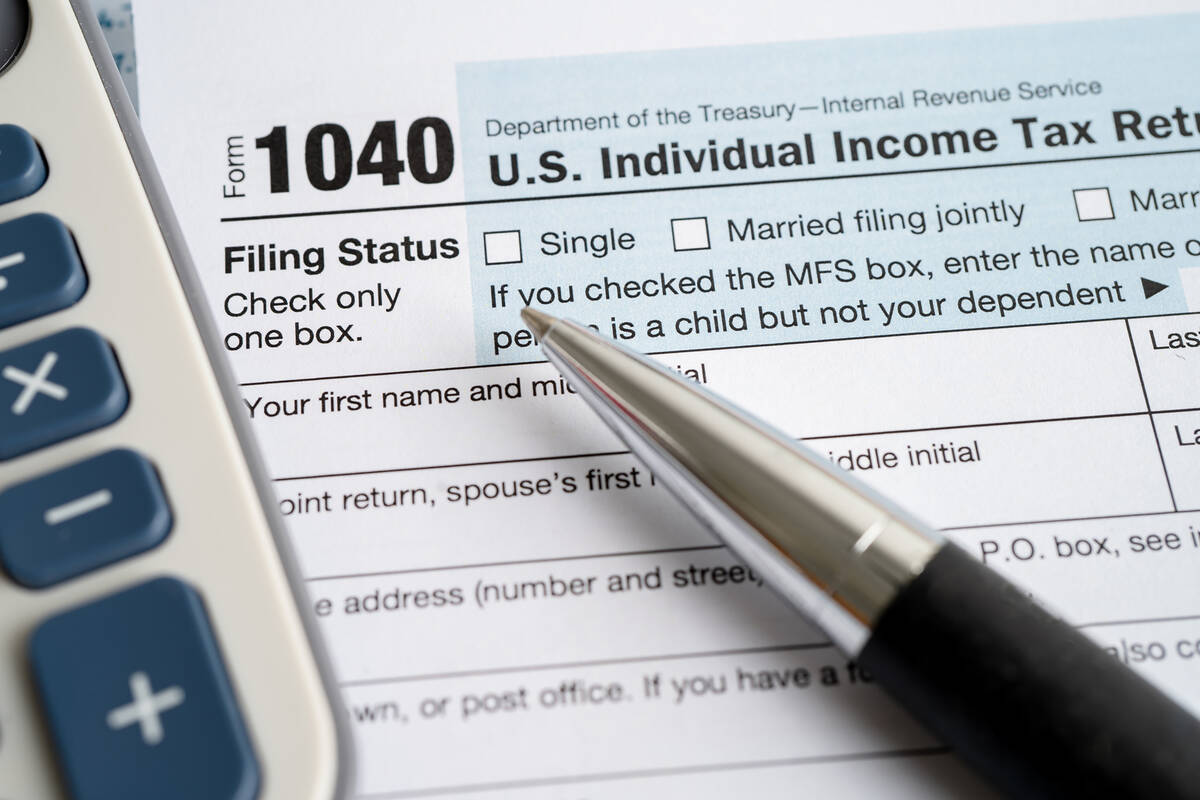Savvy Senior: What are IRS tax filing requirements for retirees?
Dear Savvy Senior: What are the IRS income tax filing requirements for retirees this tax season? My income dropped way down when I retired in 2022, so I’m wondering if I need to even file a tax return this year. — Recently Retired
Dear Recently: Whether you are required to file a federal income tax return this year will depend on how much you earned last year, as well as the source of the income, your age and filing status.
Here’s a rundown of this tax season’s IRS tax filing requirement thresholds:
Single: $12,950 ($14,700 if 65 or older by Jan. 1, 2022).
Married filing jointly: $25,900 ($27,300 if you or your spouse is 65 or older; or $28,700 if you’re both over 65).
Married filing separately: $5 at any age.
Head of household: $19,400 ($21,150 if 65 or older).
Qualifying widow(er) with dependent child: $25,900 ($27,300 if 65 or older).
For most people, it is pretty straightforward. If your 2022 gross income — which includes all taxable income, not counting your Social Security benefits, unless you are married and filing separately — was below the threshold for your filing status and age, you may not have to file. But if it’s over, you will.
To get a detailed breakdown on federal filing requirements, along with information on taxable and nontaxable income, call the IRS at 800-829-3676 and ask them to mail you a free copy of “1040 and 1040-SR Instructions for Tax Year 2022,” or you can see it online at IRS.gov/pub/irs-pdf/i1040gi.pdf.
Other financial situations
Be aware that there are other financial situations that can require you to file a tax return, even if your gross income falls below the IRS filing requirements. For example, if you earned more than $400 from self-employment in 2022, owe any special taxes such as an alternative minimum tax, or get premium tax credits because you, your spouse or a dependent is enrolled in a Health Insurance Marketplace plan, you’ll need to file.
You’ll also need to file if you’re receiving Social Security benefits and one-half of your benefits plus your other gross income and any tax-exempt interest exceeds $25,000, or $32,000 if you’re married and filing jointly.
To figure all this out, the IRS offers an online tax tool that asks a series of questions that will help determine if you’re required to file or if you should file because you’re due a refund. It takes less than 15 minutes to complete.
You can access this tool at IRS.gov/Help/ITA — click on “Do I Need to File a Tax Return?” Or you can get assistance by calling the IRS helpline at 800-829-1040.
Tax preparation help
If you do need to file a tax return, you can do so for free at IRS.gov/FreeFile if your 2022 adjusted gross income was below $73,000.
Or, if you need some help, contact the Tax Counseling for the Elderly program. Sponsored by the IRS, TCE provides free tax preparation and counseling to middle- and low-income taxpayers 60 and older. Call 800-906-9887 or visit IRS.treasury.gov/freetaxprep to locate services near you.
You can also get tax preparation assistance through the AARP Foundation Tax-Aide service. Call 888-227-7669 or visit AARP.org/findtaxhelp for more information. You don’t have to be an AARP member to use this service.
Send your senior questions to: Savvy Senior, P.O. Box 5443, Norman, OK 73070, or visit SavvySenior.org.

















